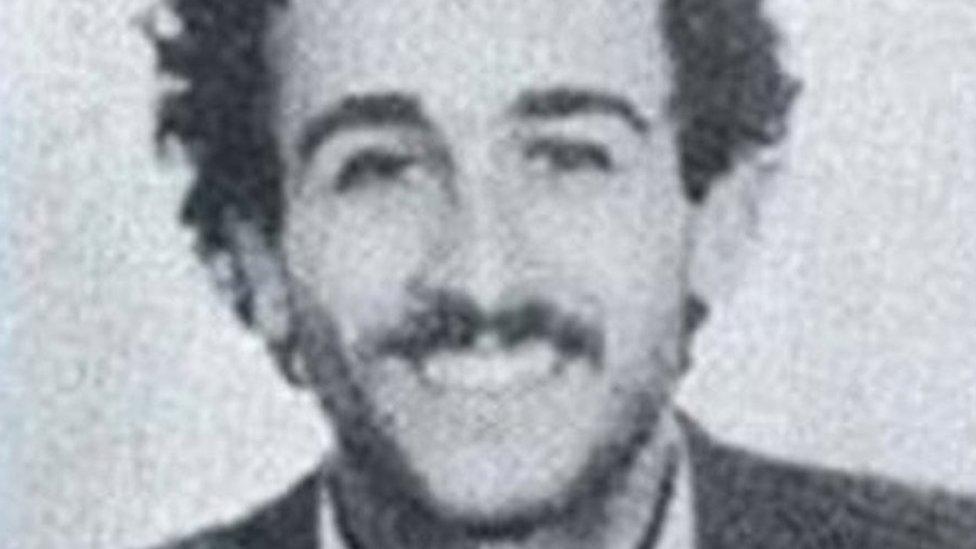Hezbollah militant Salim Ayyash given life sentences for Hariri killing
- Published
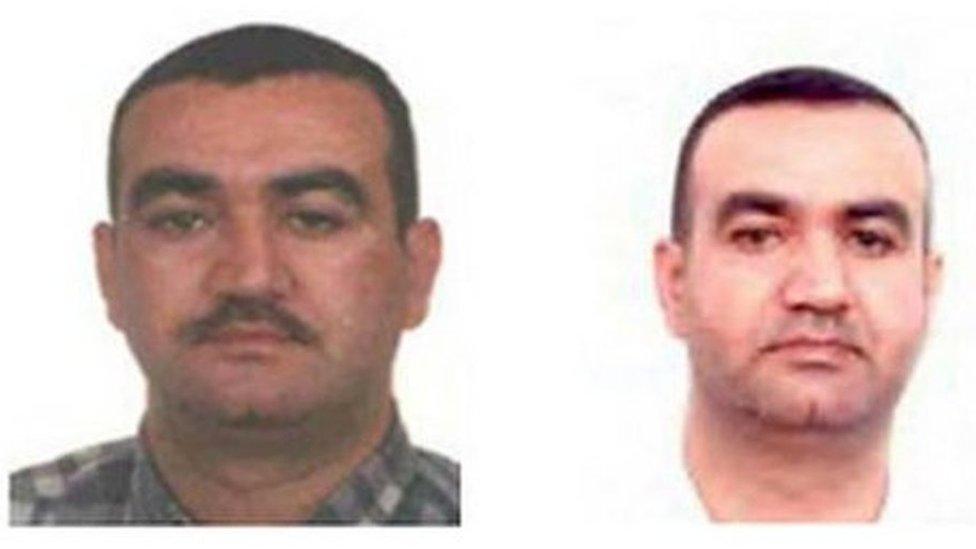
The whereabouts of Salim Ayyash remains unknown
A member of the militant group Hezbollah has been given five life jail terms in absentia for the assassination of former Lebanese PM Rafik Hariri.
He was found guilty earlier this year of involvement in the assassination.
Judges at the Netherlands-based Special Tribunal for Lebanon (STL) said Salim Ayyash played a central role in the bomb attack in Beirut in 2005 that killed Hariri.
They acquitted three other defendants, who like Ayyash were tried in absentia.
Hezbollah denied any involvement, and the judges said no evidence implicated the Shia militant group's leaders.
The Special Tribunal for Lebanon, which is based in the Netherlands, found Salim Ayyash guilty of murder in absentia. Rafiq Hariri was killed in a suicide blast 15 years ago.
What was the case about?
Rafik Hariri, a Sunni, was a billionaire businessman who served as prime minister of Lebanon five times following the 1975-90 civil war.
His last term in office ended in 2004, after which he aligned himself with the opposition in parliament and backed calls for Syria to withdraw its forces, which had been in Lebanon since 1976.
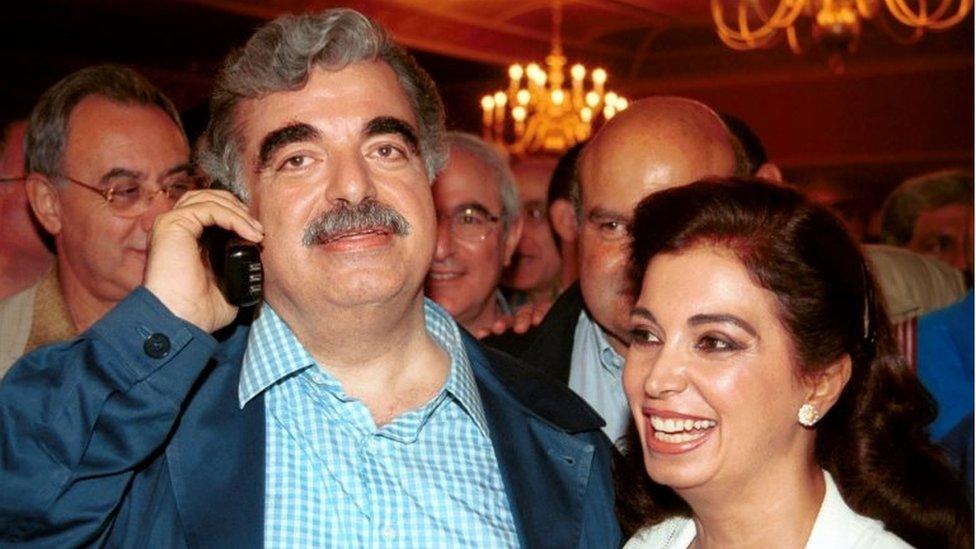
Hariri, a billionaire businessman, had urged Syria to pull its forces from Lebanon
On the morning of 14 February 2005, Hariri was travelling in a motorcade past the St George Hotel in central Beirut when a bomb hidden in a van exploded.
The blast created a crater at least 10m (32ft) wide and 2m deep in the street, and left nearby vehicles smouldering and shopfronts blown out and blackened.
The killing brought tens of thousands of demonstrators onto the streets in protest against the pro-Syrian government, with the finger of blame for the assassination pointed at Lebanon's heavily influential neighbour.
The government resigned two weeks later and Syrian troops pulled out that April.

The killing of Hariri triggered huge anti-government protests in Beirut
After collecting evidence, the UN and Lebanon set up the STL in 2007 to investigate the bombing, and four suspects were ultimately put on trial in absentia.
The prosecution's case relied on the analysis of calls between mobile phones that it said were used to plan, prepare and execute the attack.
A Lebanese investigator who started the trawl of the phone data and made crucial early breakthroughs, Wissam Eid, was assassinated in Beirut in 2008.
- Published18 August 2020
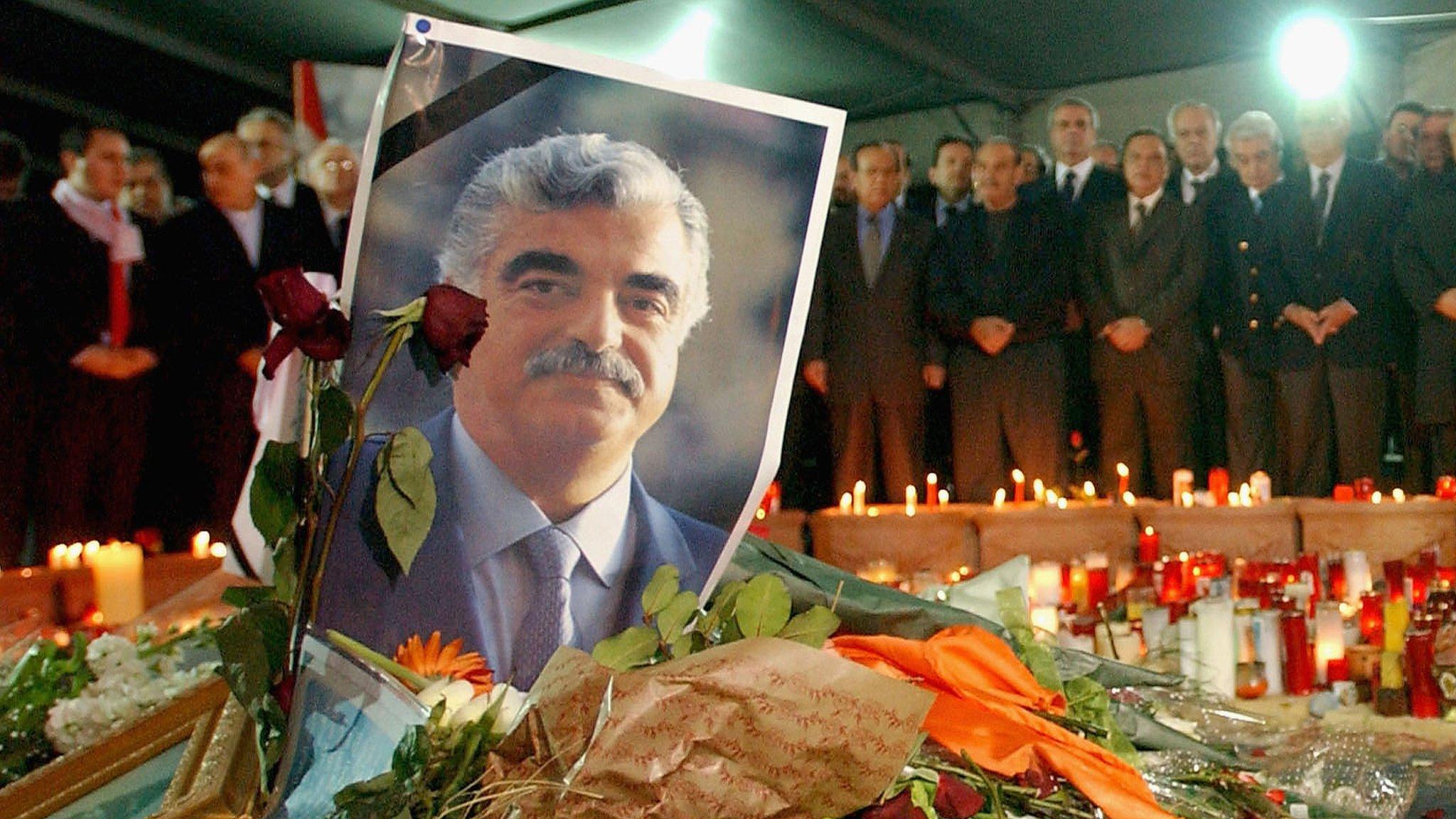
- Published16 January 2014
- Published18 August 2020
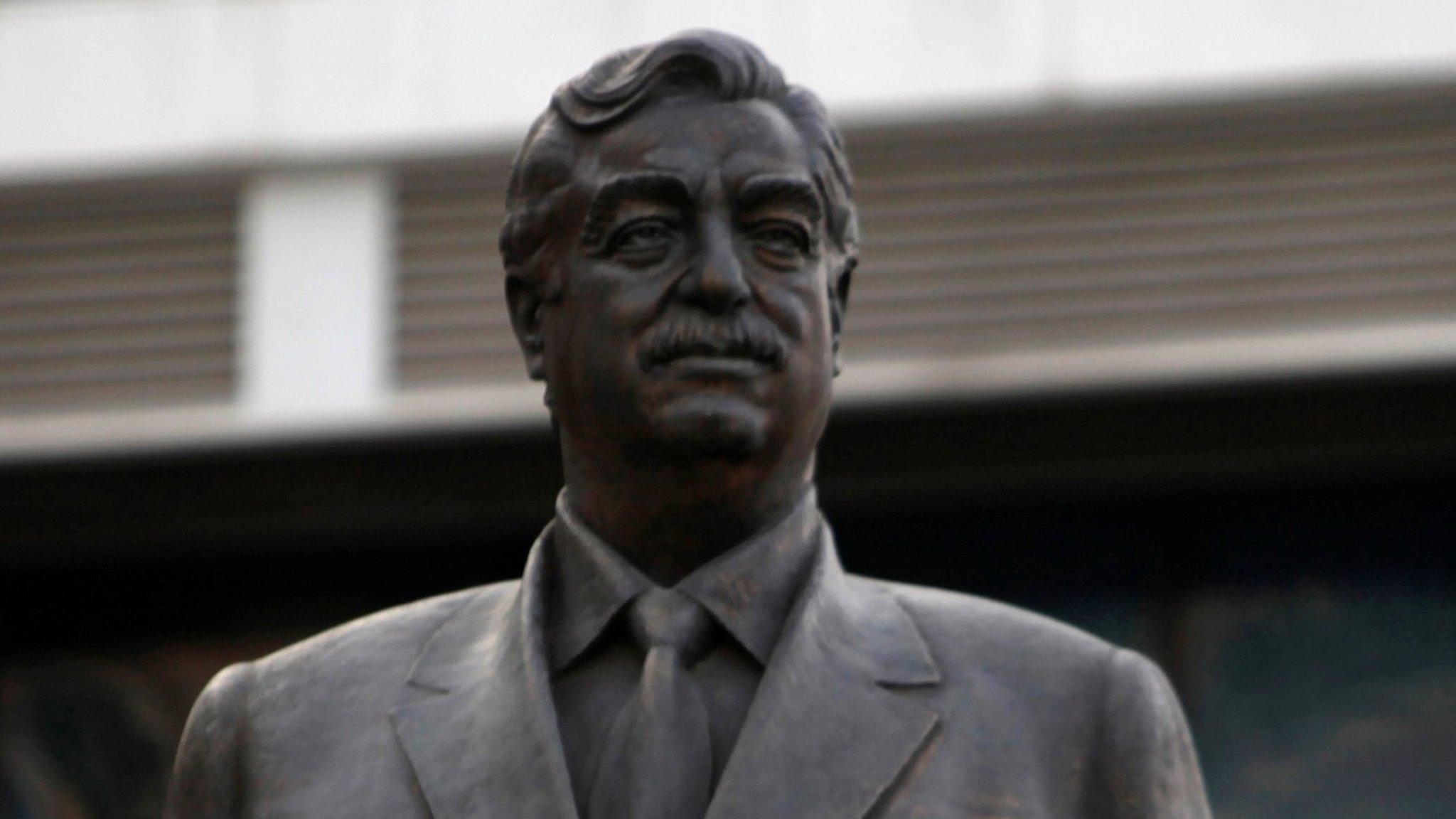
- Published14 May 2016
